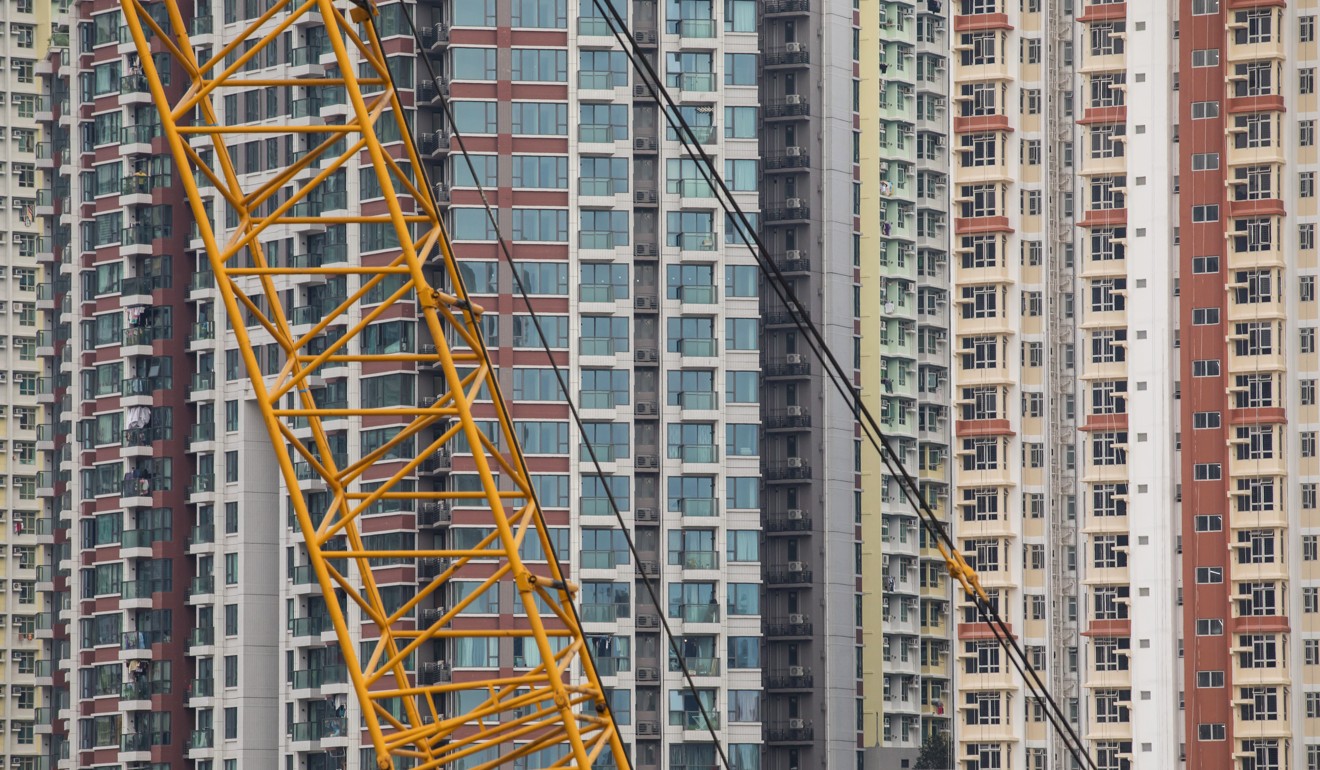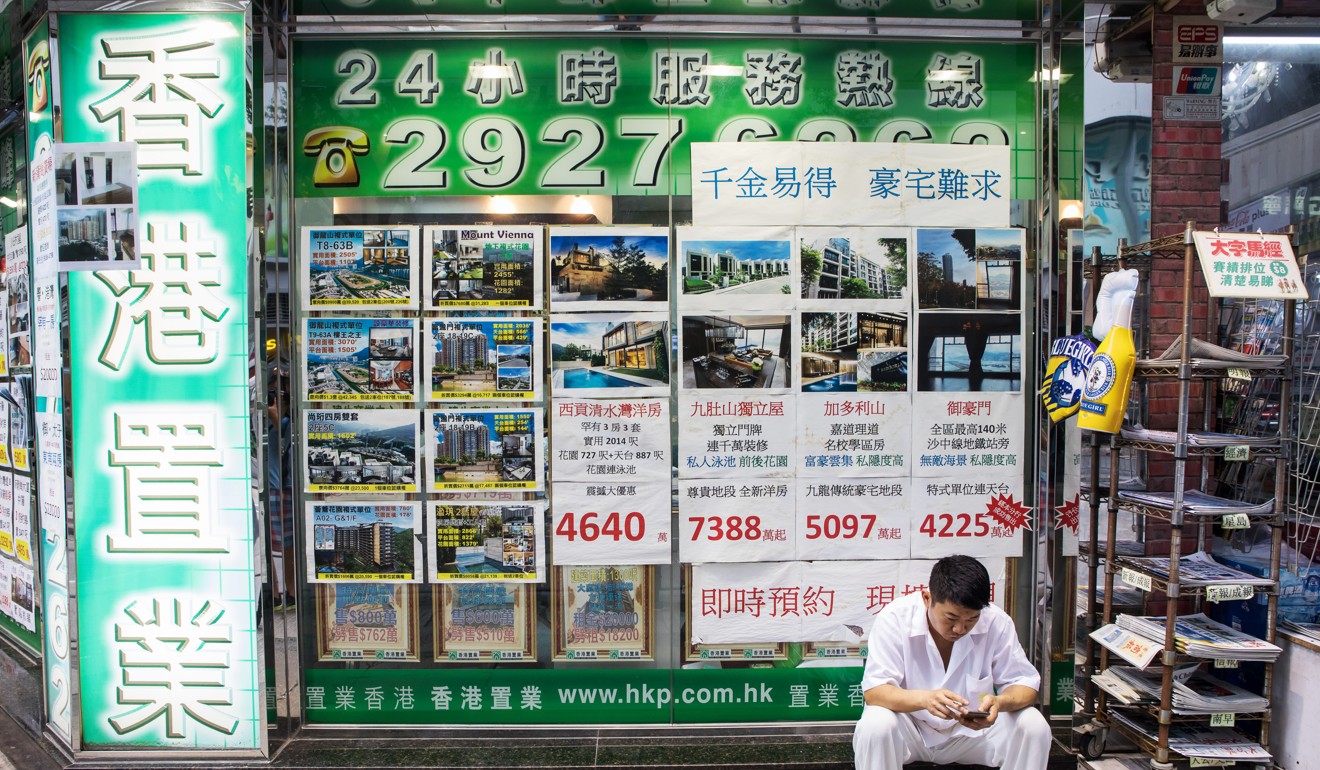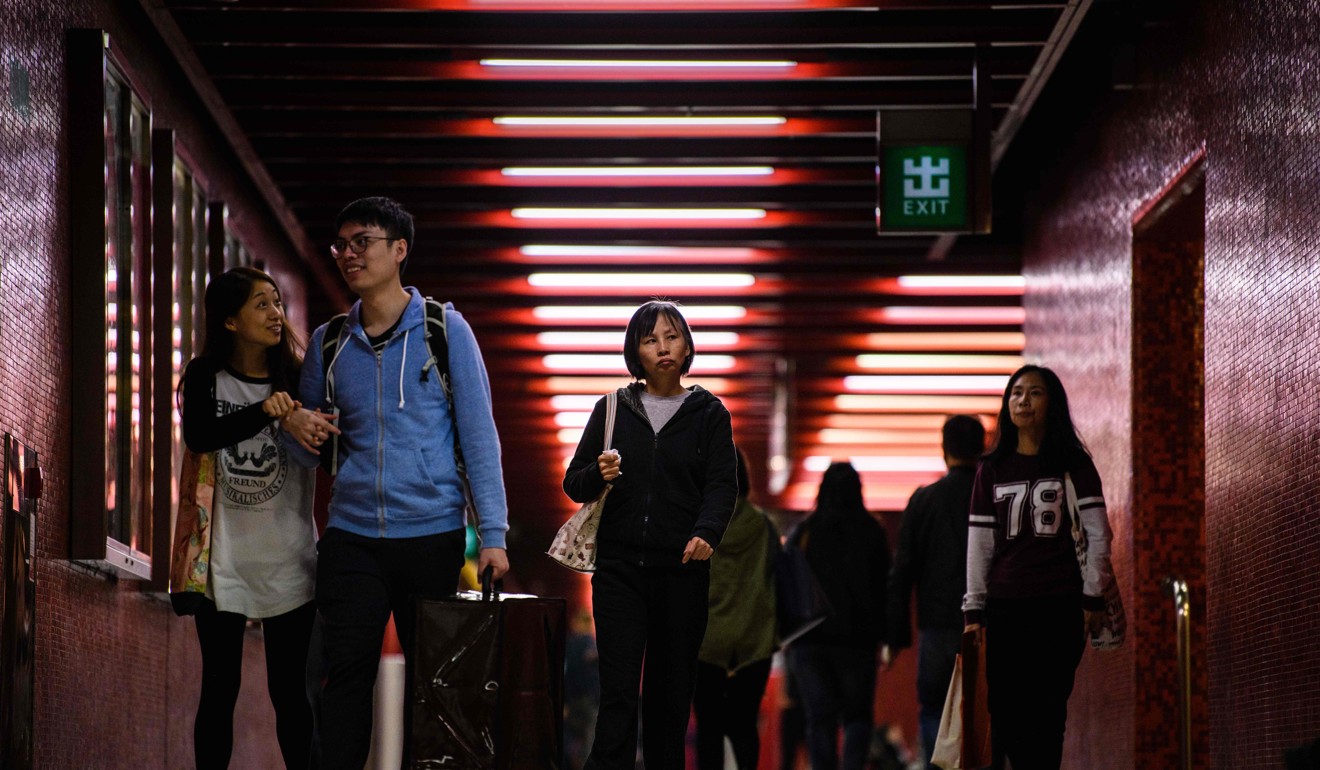
Cooling property market hits budget surplus as figures for 2019 set to be two-thirds down on last year’s, says Hong Kong financial secretary Paul Chan
- Chan said on Saturday that the fall in surplus was caused by a drop in land sales and stamp duties, and increased expenditure

A drop in land sales and increased expenditure on public services have reduced the government’s surplus to around HK$46 billion (US$5.9 billion) this year, down two-thirds from 2017-18, Financial Secretary Paul Chan Mo-po said on Saturday.
The sharp fall marks a four-year low, even though the government has enjoyed surpluses for the past 15 years.
The disclosure sparked calls from critics for the government to think twice before committing to a costly reclamation project east of Lantau Island.
Chan also hinted that the government was considering relaxing loan-to-value ratios for mortgages to help first-time homebuyers but he would not say when that might happen.

Speaking at a town hall meeting ahead of next month’s budget, the financial secretary said the surplus would be “more or less” the HK$46 billion estimated in February last year.
Chan explained the decrease was caused by a fall in land sales and stamp duties, coupled with an increase in recurrent expenditure on various public services.
Since taking office in July 2017, leader Carrie Lam Cheng Yuet-ngor has pushed social policies with higher recurrent expenditure, most notably an additional HK$7 billion for education.
Chan had indicated last year that recurrent spending would continue to rise.
Fending off calls to continue giving eligible citizens a HK$4,000 cash handout, Chan noted on Saturday: “The surplus this year is far less than that of last year … The situation is very different.”
He said he would continue to listen to the views of the public.
The 2017-18 financial year saw a record HK$138 billion surplus.
Several audience members at Saturday’s forum expressed scepticism at the high cost of the “Lantau Tomorrow Vision” reclamation scheme, and feared it might lead to a long-term deficit in public finances.
We’re confident the plan can drive revenue, and the government won’t do anything it cannot afford
The plan, announced by Lam in her second policy address in October, has been estimated to cost more than HK$500 billion, although the government has refused to confirm the figure.
Chan said it was too early to speculate on whether the plan would cause a deficit, and urged the public to give the government the “benefit of the doubt” while awaiting more details.
“We’re confident the plan can drive revenue, and the government won’t do anything it cannot afford,” he said, stressing the cost would be incurred in one go.
Chan said the economy this year might suffer slower growth than in 2018, and circumstances remained challenging due to global uncertainty, in particular the ongoing US-China trade war.
Democratic Party lawmaker Andrew Wan Siu-kin said the government should look again at the controversial reclamation plan.

“With dark clouds looming over the economy, does the government have to be a big spender?” he said.
Wan, who pushed for cash handouts in last year’s budget, said the government would need to allocate its reserves appropriately if there was an economic downturn.
Chinese University economist Terence Chong Tai-leung believed the government was still capable of dishing out sweeteners, including another HK$4,000 to eligible citizens.
The administrative cost of the handout would be much reduced as it was not its first year, he said.
“Some HK$40 billion [surplus] is not a small amount. The actual figure may even be higher,” said Chong, who was still forecasting a surplus of HK$60 billion to HK$80 billion.
Economist Andy Kwan Cheuk-chiu, however, said officials should only provide relief measures if necessary.
He also called on the government to think again about the reclamation, which he described as a ticking bomb.
Kwan said if there were budget deficits in a few years the ability to fund the project would decrease.

“After you have committed, you can’t stop … the hidden expenditure problems would be big,” he said.
Education sector lawmaker Ip Kin-yuen said he believed the government would not revise its recurrent expenditure on education as it was a commitment the administration made.
But Ip believed officials might cut some one-off incentives.
At the meeting, Chan was twice urged to relax loan-to-value ratios for mortgages. He said the government was “very sympathetic” towards those facing hefty down payments and hinted it may consider easing ratios, especially for first-time buyers.
But he cautioned that any change would depend on the pace of downward adjustments in the housing market, the premium between the primary and secondary market, transaction volumes and the macro environment.
“We want to find a time so if this relaxation happens, the government’s intention will not be mistaken,” Chan said, adding there were no plans to relax the buyer’s stamp duty and double stamp duty that were introduced to cool housing demand.
He said he would not set a time on making a change.
Chan delivers his budget speech on February 27.